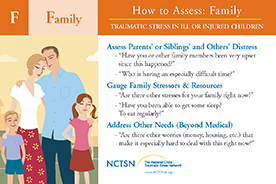
Pediatric Medical Traumatic Stress: How to Assess and Help - Family
Provides tips for medical professionals on how to assess a family of ill or injured children and how to help their families.
The following resources on child trauma were developed by the NCTSN. To find a specific topic or resource, enter keywords in the search box, or filter by resource type, trauma type, language, or audience.

Provides tips for medical professionals on how to assess a family of ill or injured children and how to help their families.
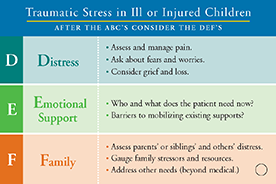
Offers information about distress, emotional support, and working with families after a medical trauma. These reference cards are a way to quickly screen if a parent, caregiver, or child is at risk for ongoing traumatic stress reactions after a medical procedure or trauma.
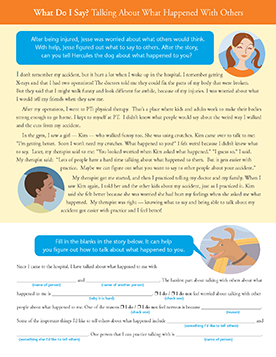
Provides information to youth about how to talk about medical trauma with others. This tip sheet, a part of the Pediatric Medical Traumatic Stress Toolkit, includes a scenario to read that describes how therapy helped the youth in the story.
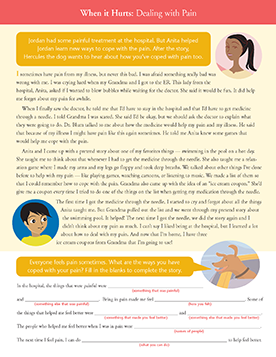
Provides children with information and activities to help cope with pain after an injury, illness, or medical stay.
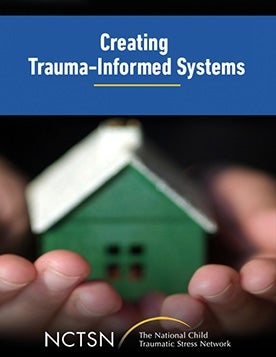
Addresses the relevance of traumatic stress for healthcare providers and discusses the prevalence, impact, risk factors, and mechanisms of pediatric medical trauma.

Offers training on the various components of Trauma-Focused Cognitive Behavioral Therapy.
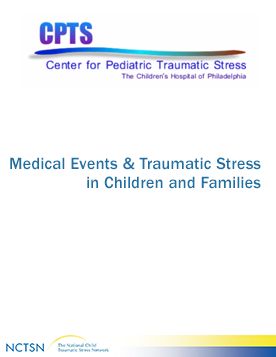
Offers information to providers about the impact of traumatic medical events.

Provides information about using Trauma-Focused Cognitive Behavioral Therapy (TF-CBT) with children and families who have experienced childhood traumatic grief.